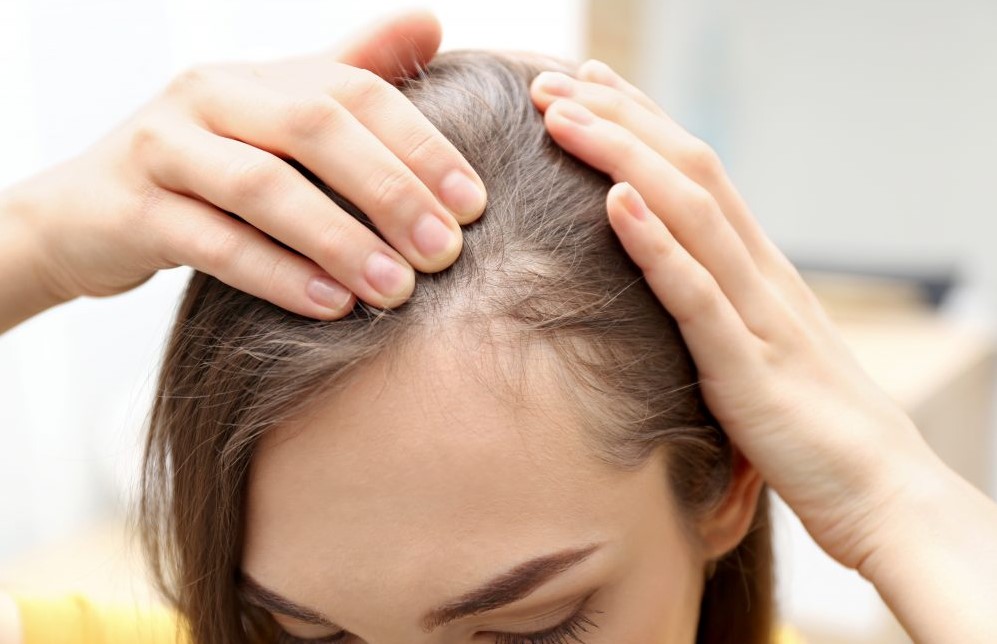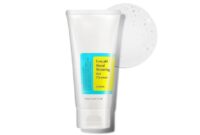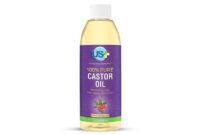Are you tired of dealing with hair loss due to alopecia? It’s a frustrating and often embarrassing problem that affects millions of people worldwide. But don’t worry, there are products available that can help you combat this condition and promote hair growth.
In this article, we’ll introduce you to the best products for alopecia and help you choose the right one for your needs. First, let’s talk about what alopecia is and what causes it.

Alopecia is a medical condition that causes hair loss, either in small patches or all over the body. It occurs when the immune system attacks hair follicles, causing them to shrink and eventually stop producing hair. Alopecia can be caused by a variety of factors, including genetics, stress, and hormonal changes.
While there is no cure for alopecia, there are products available that can help promote hair growth and slow down the progression of the condition. In the following sections, we’ll explore the best products for alopecia and how they can help you regain your confidence and feel more comfortable in your skin.
Understanding Alopecia and Its Causes
Do you know what’s causing your hair loss? Understanding the root of your alopecia can help you find the best product to combat it.
Alopecia refers to hair loss, and it can be caused by a variety of factors. These can include genetics, hormonal imbalances, autoimmune disorders, medications, and even stress. Identifying the cause of your hair loss is the first step in finding the right product to help you address it.
The impact of alopecia on mental health should also be considered. Losing your hair can be a traumatic experience, and it can lead to feelings of low self-esteem, anxiety, and depression. Finding a product that works for you can help boost your confidence and improve your overall well-being.
It’s important to take care of both your physical and mental health when dealing with alopecia.
Shampoos and Conditioners for Alopecia
Using a shampoo and conditioner specifically designed for hair loss is like giving your scalp a refreshing spa treatment. These products are formulated to help stimulate hair growth, add volume, and strengthen the strands. Look for ingredients like biotin, keratin, and caffeine, which have been shown to promote hair health.
It’s important to note that while these products can be effective, they may not work for everyone, and it’s always a good idea to consult with a dermatologist or trichologist for a personalized treatment plan.
In addition to using specialized hair care products, there are also natural remedies and professional treatments that can help with alopecia. Some popular natural remedies include essential oils like lavender and rosemary, which can be massaged into the scalp to stimulate hair growth.
Professional treatments like platelet-rich plasma (PRP) therapy and hair transplants are also options for those looking for more aggressive solutions. Ultimately, finding the best product for alopecia depends on your individual needs and preferences, so don’t be afraid to experiment and explore different options.
Vitamins and Supplements for Hair Growth
Vitamins and supplements are often recommended by dermatologists and trichologists to help stimulate hair growth and improve the overall health of the scalp. One of the most popular supplements for hair growth is biotin. Biotin is a B-vitamin that’s essential for the growth and maintenance of healthy hair, skin, and nails. It helps to strengthen the hair follicles and promote healthy hair growth.
Biotin benefits also include improving the texture and thickness of the hair, as well as reducing hair loss. In addition to taking supplements, making dietary changes can also help improve the health of your hair and scalp. Eating a diet rich in vitamins and minerals, such as iron, zinc, and vitamin C, can help promote healthy hair growth.
Foods like spinach, kale, and broccoli are great sources of iron, while oysters and pumpkin seeds are high in zinc. Incorporating these foods into your diet, along with taking biotin supplements, can help improve the overall health of your hair and scalp.
Topical Treatments for Alopecia
If you’re looking for a way to treat hair loss, topical treatments could be a helpful option. These treatments are applied directly to the scalp and work by stimulating hair growth.
There are many natural remedies available, such as essential oils and herbal extracts, that have been shown to be effective in clinical trials. One natural remedy that has shown promise in treating alopecia is peppermint oil. Peppermint oil contains menthol, which gives it a cooling sensation and helps to increase blood flow to the scalp.
This increased blood flow can help to stimulate hair growth and prevent further hair loss. Other natural remedies that have been shown to be effective in clinical trials include rosemary oil and saw palmetto extract. These remedies work by blocking the production of the hormone DHT, which is known to contribute to hair loss.
Hair Replacement Options for Severe Alopecia
Looking for a way to restore your hair? Check out some of the latest options for hair replacement in cases of severe alopecia.
One popular option is wigs, which can be made from synthetic or natural hair and come in a variety of styles and colors. Wigs can be custom-made to fit your head and can be styled just like natural hair. They’re also easy to care for and can be removed at any time.
Another option is scalp micropigmentation, which involves tattooing tiny dots onto the scalp to mimic the look of hair follicles. This technique can be used to create the appearance of a closely shaved head or to fill in areas of thinning hair. Scalp micropigmentation is a non-invasive procedure that requires no downtime and can last for several years. It’s a great option for those who want a low-maintenance, long-lasting solution for their alopecia.
Frequently Asked Questions
Can stress cause alopecia and how can it be managed?
Stress can definitely cause alopecia, and it’s important to manage it to prevent hair loss.
There are many stress management techniques you can try, such as exercise, meditation, and deep breathing. You can also try cognitive-behavioral therapy or talk therapy to help you cope with stress.
Additionally, make sure you’re taking care of yourself by getting enough sleep, eating a healthy diet, and staying hydrated. It’s important to remember that managing stress is an ongoing process, so find what works for you and make it a part of your daily routine.
By taking steps to manage your stress, you can prevent hair loss and improve your overall health and well-being.
What lifestyle changes can be made to prevent or manage alopecia?
To prevent or manage alopecia, it’s important to incorporate healthy habits into your lifestyle. Eating a balanced diet rich in protein, vitamins, and minerals can support hair growth and strength. Regular exercise can improve circulation to the scalp and promote healthy hair. Proper hair care is equally important, so use gentle shampoos and conditioners and avoid heat styling tools to prevent damage and breakage.
Managing stress through relaxation techniques like yoga or meditation can also help prevent hair loss. By implementing these healthy habits into your daily routine, you can improve the overall health of your hair and potentially prevent or manage alopecia.
Are there any natural remedies or alternative therapies that can help with alopecia?
If you’re looking for natural remedies or alternative therapies to help with alopecia, you may want to consider herbal treatments and hair growth supplements.
There are several herbs that are believed to promote hair growth, such as saw palmetto, ginkgo biloba, and aloe vera.
Additionally, hair growth supplements containing biotin, zinc, and other vitamins and minerals may also be beneficial.
While these remedies may not work for everyone, they can be a safe and effective option for those looking to manage their alopecia without harsh chemicals or medications.
As with any treatment, it’s important to speak with your healthcare provider before starting any new regimen.
Is there a link between diet and alopecia, and are there specific foods that should be avoided or added to the diet?
If you’re struggling with hair loss due to alopecia, you may be wondering if there’s anything you can do in terms of your diet to help. While there’s no one-size-fits-all answer, there are certainly some foods that may be beneficial to add to your diet, as well as some that should be avoided.
For example, consuming foods high in protein, vitamins, and minerals can help promote healthy hair growth. On the other hand, consuming too much sugar or processed foods may contribute to inflammation, which can worsen hair loss.
It’s also important to talk to your doctor or a registered dietitian to develop a personalized plan that takes into account your specific needs and medical history. Remember, while diet alone may not be a cure for alopecia, it can certainly be a helpful tool in managing your condition.
Can alopecia be cured and what are the chances of hair regrowth with different treatments?
If you’re wondering whether alopecia can be cured and what your chances are for hair regrowth, the good news is that there are a variety of medical treatments available.
These hair regrowth options range from topical medications to oral drugs and even light therapy.
While there is no one-size-fits-all approach to treating alopecia, many people have experienced success with these medical treatments.
It’s important to work with your doctor to determine the best course of action for your individual needs and to be patient, as results can take time.
While there’s no guarantee that any particular treatment will work for you, with the right approach, there’s definitely hope for hair regrowth.
Conclusion
Congratulations! You’re now armed with knowledge on the best products for alopecia.
Remember, alopecia is a complex condition with various causes, so what works for one person may not work for another. However, there are several products that have been proven to help with hair growth and managing the symptoms of alopecia.
Did you know that over 6.8 million people in the United States alone suffer from alopecia? That’s a staggering statistic!
But, with the right products and treatments, it’s possible to manage the condition and even regrow hair. From shampoos and conditioners to topical treatments and hair replacement options, there are many choices available to help you find the best product for alopecia.
So, don’t give up hope, keep trying different products until you find the one that works for you. Remember, with patience and persistence, you can take control of your alopecia and live life with confidence.


